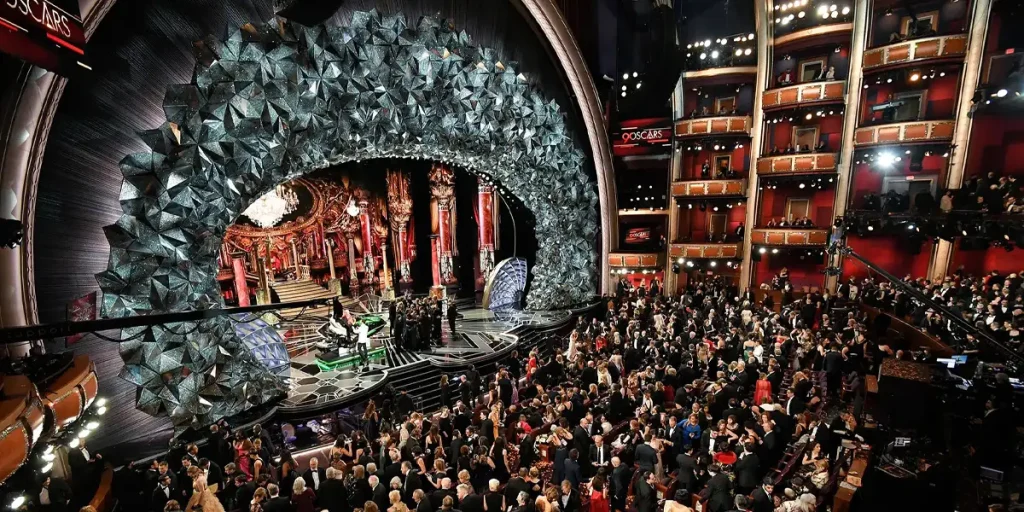The coveted Oscars have a lot of problems that compromise their integrity, and it’s perhaps time that they stop being taken too seriously.
The 94th Academy Awards, or the Oscars, announced their nominations on February 8, 2022, and as is the case with every year, the lineup garnered some praise, some annoyance, and sparked various discussions about the relevance and meaning of the Oscars in general. These awards, supposedly the highest, most coveted honors in all of cinema, have seen no shortage of backlash and derision in their near-century-long existence. But their prestige seems to have fallen particularly hard over the past ten years. Ratings have gotten lower and lower, outcry over issues like diversity and favoritism have risen, and I hear less people every year who express their interest in the Academy Awards or even know what was nominated.
And despite my love of film, and despite me still paying attention to how the awards play out, I have become one of those people who simply doesn’t take the Oscars seriously anymore, nor do I consider them to have the clout or prestige that they’re supposed to be known for. And I know I’m far from the only one, even within circles of cinephiles. How many times have you heard someone point out an Oscar result as evidence that the Oscars are bogus? (But then, those same people will ironically go and use another Oscar result to hype up something they really like.) The more I see the Oscars play out over the years and the more I look into them, the less I respect them as an authority or important part of the yearly cinematic cycle. There’s a multitude of reasons for this, and I’m going to break them all down and explain why I feel the Oscars, though rich in potential, should not be taken too seriously.
The Skew Towards Later Releases and Momentum

One of the most noticeable trends of Oscar nominations is how much the Academy focuses on films that came out in the last few months of their respective years, right before Oscar season begins. There are two reasons for this that largely feed into each other: studios release the films they feel are the worthiest of Oscar consideration around this time, and the later films of the year are usually freshest on the Academy’s minds when it’s time to nominate. Many films even have a limited release right at the end of the year before their true wide release early the following year, just so they can “technically” be considered for the nearest awards season and not the one to come nearly a year later. It’s hard to know for sure how much of this skewed proportion is caused by some short attention span on the Academy’s part, and how much is because the studios are simply releasing their best movies towards the end of the year. But whatever the case, this “Oscar season” has held strong as the time of year where films have the best chances of being noticed by the Academy.
Because of this, films released earlier in the year often seem to be overlooked, despite them being praised by many as some of the best of that year on par with later releases. Earlier films in 2021 like Pig, Shiva Baby, and The Green Knight are all worthy of multiple nominations in different categories in the eyes of many critics and moviegoers, and yet they all got none. I have a strong suspicion that they would have gotten more Oscar buzz had they been released in the Fall movie season instead of being forgotten about. In 2020, Delroy Lindo received immense acclaim for his lead role in Spike Lee’s Da 5 Bloods, but he was shut out of the Best Actor race of that year, and the film itself was only given one nomination in total. If this film had come out near the end of 2020 as opposed to that summer, I guarantee you it would have been swimming in nominations, as it contains just about everything the Academy typically likes, such as social relevance, fantastic performances, Lee’s prior Oscar success, and even another chance to honor the late Chadwick Boseman on top of his nominated performance for Ma Rainey’s Black Bottom.
A film’s campaign momentum plays as big a part as, if not a bigger part than, how good any aspect of that film is, and it’s alarming how easily that momentum can shift due to what seems like meaningless factors. Initially, Kristen Stewart was the heavy favorite for a Best Actress nomination for her 2021 role in Spencer. But in the immediate days leading up to nominations, people were beginning to think that that she could be snubbed because of the performances in films that came out after Spencer that fizzled out Stewart’s “momentum”, to a point where some were surprised that she still clinched a nomination. But why should it seriously matter when her film came out, or how recent the Academy’s memory of her performance is? If she gave one of the best female lead performances of the year, shouldn’t that be all that matters? Does that mean that if Spencer had come out in March 2021, she would have never even been in the conversation at all?
The Biases of Oscar Voters
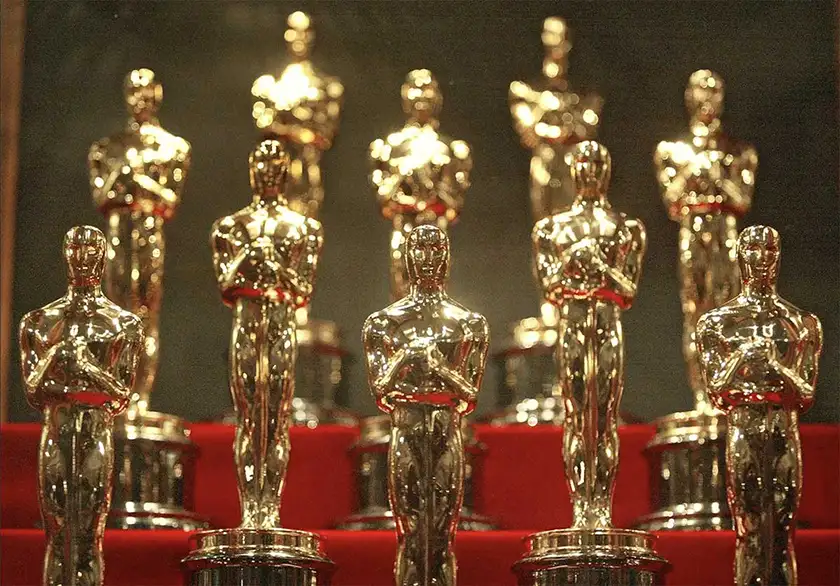
But if we’re talking about actor nominations in general, we have to address the elephant in the room that is the Academy’s history with poor racial representation. Now, I strongly believe that nominations and awards should be given solely based on the quality of a performance and not the color of an actor’s skin. I wouldn’t want any people of color to be nominated just out of obligation. But look at the 88th Academy Awards (the first appearance of the phrase “Oscars So White”), where all twenty of the nominated lead and supporting actors were white. With how many great actors of color have turned in great performances in any given year, it’s veryhard to believe that not one of them would be considered worthy of a nomination by the Academy. And this was the second year in a row where this happened. While these particular Oscars were over five years ago at this point, this speaks to how fallible the Academy is and what kinds of problems can get in the way of their proper judgements.
Another far less serious bias in the Oscars’ nominations is the neglect of genre films. With rare exceptions, the biggest, most prominent awards like Best Picture, Best Director, and the actor categories overlook genres like sci-fi and especially horror, which seem to rarely ever be taken seriously. Toni Collette in Hereditary, Lupita Nyong’o in Us, Elizabeth Moss in The Invisible Man, and Rebecca Hall in The Night House were all lauded as some of the best performances of their respective years. But not once did anyone even think they would be nominated, solely because their roles were for horror films. Animated films, despite getting somewhat decent recognition thanks to the Best Animated Feature category, still only have three instances of being nominated for Best Picture, and animation directors and voice actors seem to get completely shut out from any consideration. In a 2016 article by Screen Crush titled “Why Can’t an Animated Film Be Nominated for Best Director at The Oscars?”, Pixar story supervisor Kelsey Mann expressed how vital director Pete Docter was to the creation of the animated film Inside Out, stating: “From the ground up, directors at Pixar are in charge of everything from the story to the individual blades of grass. We start from nothing. Literally nothing. And it all has to be built from the ground up. And Pete is involved in every decision.” It seems very unfair for Docter and all other essential animation directors to have seemingly no chance at recognition at the Oscars.
While the selection pool of Oscar nominations throughout history is broader than some might realize, it’s still clear that a chunk of great cinema is being ignored, meaning the Oscars can’t accurately claim to truly be considering all of the best of the year. When the same trends keep occurring year after year, it’s impossible to not see a multitude of biases going on that go farther than mere coincidences.
Problems with How the Academy Votes
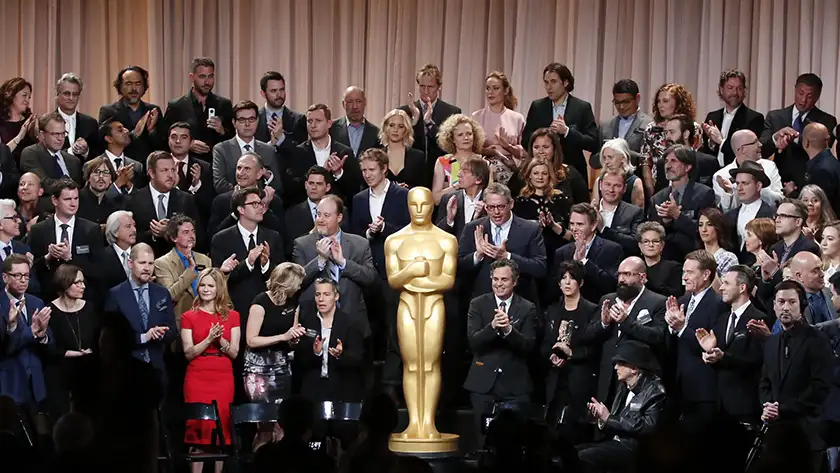
Even when just looking within the set of movies that typically get the Academy’s attention, the processes of choosing who gets the awards are questionable at best. The Oscars sometimes don’t seem to care as much about the quality of the works they’re nominating as much as the narrative around the works they’re nominating, and how the nominations will feed into that narrative. A 2019 article by Vox titled “How to Win an Oscar” succinctly describes how nominations need to fit an “archetype”, stating: “A good narrative matters just as much as (and sometimes more than) the film itself in determining who ends up with gold statues on Oscar night. It’s possible to build a narrative around a less-than-ideal candidate that compensates for what they lack in appeal.”
This is very likely a huge reason why Black Panther, a superhero movie with a mostly black cast that explicitly deals with themes of racial unity and cultural celebration, got nominated for Best Picture in 2019, despite the Academy having never before given superhero movies any shot at the big award. Whether or not you think Black Panther truly deserved such an honor (I can understand arguments for either side), when comparing its merits to those of other superhero films and considering the narrative behind the film that was big and powerful enough to last throughout the entire year, it’s very clear that Black Panther was nominated because of how good the Academy would look for doing so. The superhero subgenre was not suddenly being taken seriously.
Such concern over appearance also leads to irresponsible voting. An article by the LA Times, “Oscars: 12 Years a Slave Puts Spotlight on Hollywood’s Approach to Race,” reveals that in 2014, two Oscar voters privately admitted to voting for 12 Years a Slave to win Best Picture despite having not actually seen the film, simply out of obligation due to the film’s topics of slavery and racism. The following year, according to The AV Club’s article “Interviews with Oscar Voters Reveal They Are Kind of Awful, Vaguely Racist,” another member revealed that he had only seen two of that year’s Best Picture nominees, and that another voter planned on voting for Michael Keaton to win Best Actor for Birdman because, “He seems like a completely sane person who lives in the middle of the country and … I’ve loved every interview that he’s done.” And these are just a few accounts out of the literally thousands of voters involved in these awards, so one can only imagine how many more faulty practices are slipping by, completely unaccounted for, over the years.
On top of that, very few people, if anyone, can seriously claim to have seen every single movie that came out in any given year, no matter how hard they may try. So, it’s impossible for someone to know with absolute certainty that they’ve seen the best of the best in each category. That’s an inevitable, understandable issue that really can never be worked around … but it’s made worse by how, most of the time, what the Academy does see and turn their attention to is determined largely by the films’ campaigns. In 2019, Variety’s article “Oscar Campaign Spending Reaches New Heights in Competitive Season” reported that campaigns for films seeking multiple nominations can run from $20 million to $30 million, which many smaller, independent films simply wouldn’t be able to afford. Netflix certainly caught on to this and have ramped up their campaigns considerably in the past five years, with the Variety article describing how they sent the Academy overstuffed pillows and a massive book of stills to secure nominations for Roma. And given Roma’s ten nominations at the 91st Academy Awards, it’s safe to say that such tactics, to some degree, worked. Essentially, the Oscars can be seen as a celebration of the year’s best films … that were produced by people with sizeable enough wealth.
Declining Relevance and a Lack of Innovation
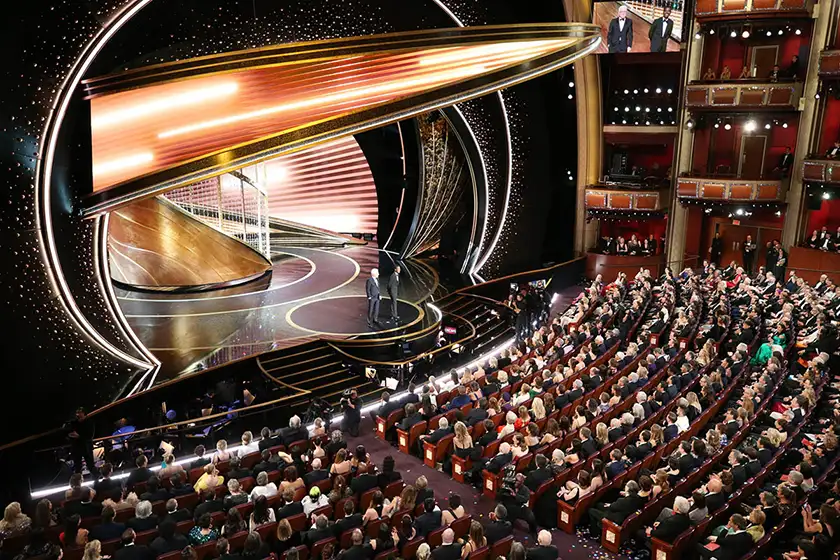
One major reason that a lot of people still have for why the Oscars should still be taken seriously is the fact that they expose wider audiences to lesser-known, high-quality films. Shady practices aside, a majority of the films nominated each year are mostly agreed upon by most as being really good, and there’s no harm in such good films being given more attention. But while the effectiveness of such added attention still may be significant to some degree these days, it’s becoming less significant with each passing year. The ratings for the televised award ceremony have been getting lower and lower, which naturally means fewer people are likely to have known about, or at the very least remembered, what was nominated. There’s just not as much interest from the general public anymore.
How many people have you spoken to who even know what this year’s Best Picture nominees are, let alone the nominees for the other categories? (Compared to ten or fifteen years ago in particular.) Plus, with the rise of social media, streaming services, and even other film awards practically saturating the landscape, it’s easier now than ever for a great film to receive attention and for word-of-mouth to spread. We’re reaching a point where the year’s cinematic highlights can be discovered just as easily through these new means than through the Oscars themselves … maybe even better than the Oscars, given the ceremony’s decisions in recent years.
As their ratings continue to decline, the Oscars have made many choices that strongly indicate they care more about getting those numbers back up than really shining a light on the year’s best achievements in film. For the upcoming 2022 ceremony, the Academy announced that they will be cutting eight awards from the broadcast, including film editing, production design, sound, makeup and hairstyling, and original score. These categories may not get the same buzz as the top awards, but anyone who knows anything about cinema recognizes how essential all of these subjects are to the art of filmmaking. The purpose of the Oscars is supposedly to bring greater awareness and recognition to the medium of film, but this cut would accomplish the exact opposite of that. And for what benefit? How many more viewers would this change really bring in? If anyone cares enough about film to watch the Oscars at all, chances are they care enough about these categories to not be happy with their exclusions. I certainly got far less interested in watching this year’s show after hearing this news, because I love seeing everyone get their moment in the spotlight.
Even if the viewership does increase because of this, the recognition for all of the hard work of every nominee in these categories would still be lower than ever. This isn’t even the first time the Academy tried something like this. The 91st Academy Awards originally planned to cut Best Cinematography, Best Live Action Short Film, Best Film Editing, and Best Makeup and Hairstyling from their live broadcast, before reversing that decision due to (very deserved) backlash. I would be surprised if their decision this time ended up working, and I would be even more surprised if the Academy didn’t attempt more changes like this in the future, which would water down the show’s purpose even more and make it even harder to take the Oscars seriously. Moves like this are turning what used to be most prominent film awards show into just one of the many awards shows out there.
Maybe the Academy could regain its relevance in the public consciousness if they showed any willingness to truly innovate. There have certainly been steps in the right direction, such as their diversity mandates put in place in 2020. But after well over 90 years, the Oscars should be upping their game a lot more. Why not recognize a wider variety of genre films as serious contenders? Why not ramp up the efforts to diversify the Academy itself, including bringing in younger people of different backgrounds who will likely reflect our current times a lot better? Why not do more to recognize stellar aspects of less-than-stellar films to increase the chances of people getting better jobs in the future that better match their talents? The Academy needs to really do something to shake up the awards in a positive way that means something to dedicated film lovers and professionals to keep them coming back time after time. Not something like Best Popular Film, which made no sense, was demeaning to films the Academy clearly wouldn’t have cared about, and would have done nothing but pander to the masses and add meaningless fluff to the show, trying to please everyone but instead pleasing no one.
The Oscars will Always Be Subjective
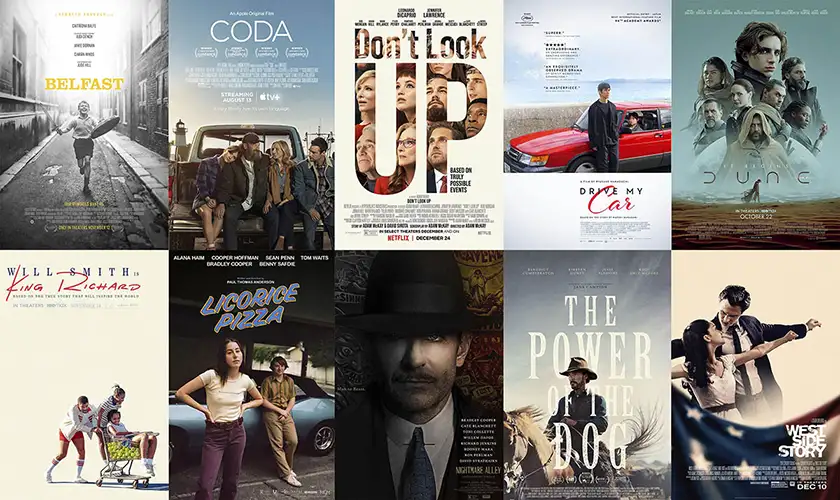
However, even with all of these issues surrounding the Oscars aside, there’s still something else that bothers me when it comes to how seriously people take the Academy Awards: their supposed objectivity. The common belief seems to be that, in the most ideal version of the Oscars possible that is plagued by none of the current problems and judges everything with 100% fairness, receiving an Oscar is the definitive, indisputable indication that the chosen film, performance, screenplay, cinematography, etc. is indeed the objectively best choice. But I am, and I always have been, of the belief that there’s really no such thing as an objectively right opinion when it comes to art, including film. Everyone could potentially have a different reaction to anything in a movie with completely valid reasoning. What some may see as masterpieces, others may see as complete messes, and vice versa.
This, logically, should extend to the people in the Academy who decide what gets nominated and what wins. Sure, they have a lot more experience with and knowledge about film and can therefore more properly judge something in relation to the whole cinematic landscape, whereas the average moviegoer hasn’t seen nearly enough movies to properly comment on any given year. There is such a thing as being too unknowledgeable and unqualified to vote in the Oscars. But the Academy members are still human beings, prone to varying thoughts and opinions that make them unique like everyone else. Many of them have likely disagreed with other critics and even each otheron what’s deserving of an award in the past. People still debate over certain outcomes like Forrest Gump’s Best Picture win over Pulp Fiction. Bohemian Rhapsody won Best Editing despite many critics and even the film’s editor himself not being fond of the editing (according to Stacker and their article “15 controversial Oscar wins—and how they’ve aged.”)
So … is there even any point of complaining about “snubs” or “undeserving” wins to begin with? If there’s no objective metric to prove a film’s worth, then why do so many people get worked up when what they perceive to be the right calls aren’t made, as if they themselves do know the objective metric through which to judge? Even I was doing this kind of thing earlier in this article, albeit for the sake of making points more easily. With every example I made regarding the injustice of something not being nominated, you may seriously think that such injustice was actually the right call and that the snubs were not worthy of any awards. And there would be nothing wrong with that. All anyone is doing, whether from within or outside the Academy, is picking out what they believe to be the best. To act like you know what the right choices are and that everyone else is objectively wrong would be very pompous and arrogant.
Which also means that there’s really no way to prove with certainty how disingenuous or ill-conceived a voter’s choice is even when disregarding shady practices. I think that Denis Villeneuve should have been nominated this year for Best Director for Dune, but it’s totally possible that Academy voters genuinely thought that five other directors deserved a slot more. I think that Lupita Nyong’o being shut out from Best Actress for Us is largely due to a bias against horror, but I can also respect why anyone would think she didn’t deserve a nomination, which means I can’t act like it’s some sort of crime that she was “snubbed.” It’s also very possible that something like Black Panther was nominated for Best Picture because it truly was considered one of the year’s best films by the Academy, and I’d understand how such an opinion could be justified. This is why I don’t take any nominations or results for any awards show seriously. We can (and should) point to evidence of the Oscars’ many faults all we want, but the line between biases, favoritism, and valid opinions is far too blurred to always know which decisions are being made legitimately and which ones are not. It’s reasonable to get angry over how nominees and winners are decided, not just the nominees and winners themselves.
Should the Oscars Still Matter?
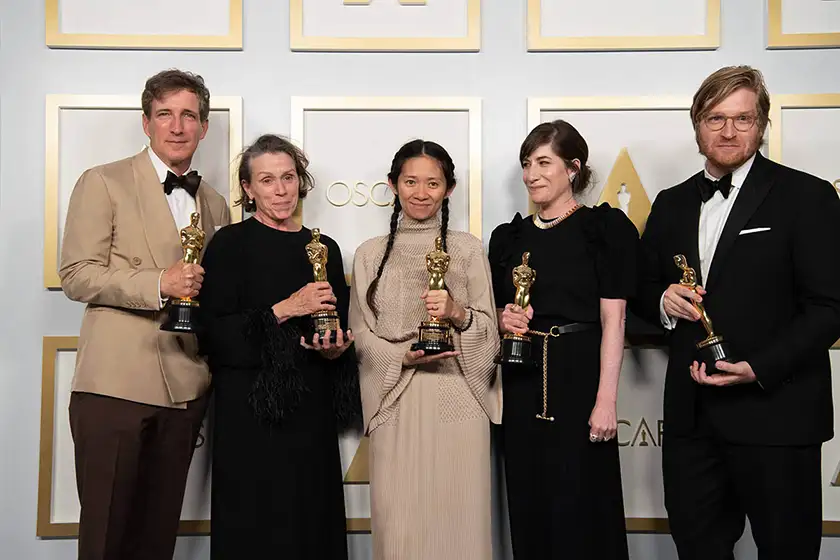
So, with everything said here and all the reasons listed to not take the Oscars too seriously, do I consider them to have any place in society at all? Well … potentially. The idea behind the Oscars at its core still holds a lot of value. Even though they shouldn’t be seen as objective confirmation of the best in film, a critical consensus given to a variety of categories is still fascinating to look at. It’s a time stamp that shows how a lot of people think, what speaks to them, and how our values have changed over time. Even the general public can use the Oscars to look back at the year and recount a lot of our favorite films and experiences at the movies, and we can have fun comparing our favorites with the Academy’s favorites to learn more about ourselves and each other. The Oscars also do still have some impact, dwindling as it may be, on the wider recognition films get. If the Oscars can recognize how to adapt and use that power in a way that does a service to cinephiles and more casual moviegoers alike, rather than short-shifting both groups, they have the potential to work exceptionally well in today’s environment.
This is why so many of us want the Oscars to matter, why we want to take them seriously, and why we want them to be as refined, diverse, and fair as they can possibly be. It’s why many people still carry investment in the awards even if they recognize how many problems there are. The Oscars have been called many things: outdated, a popularity contest, a money game, a celebration of films the masses don’t care about, and so on. All of these have some degree of truth to them, which is why I currently hold little to no real concern in how they play out anymore, and why I think many people need to double-check their own investment. But if I one day see that the Academy has cleaned up its act, opened its eyes to new ideas and viewpoints, and realized how much good it has the potential to do, then I may greatly consider changing my vote.
The 93rd Oscars will be held on Sunday, March 27, 2022 at 8e|5p, and will be televised live on ABC and in more than 225 countries and territories worldwide.

